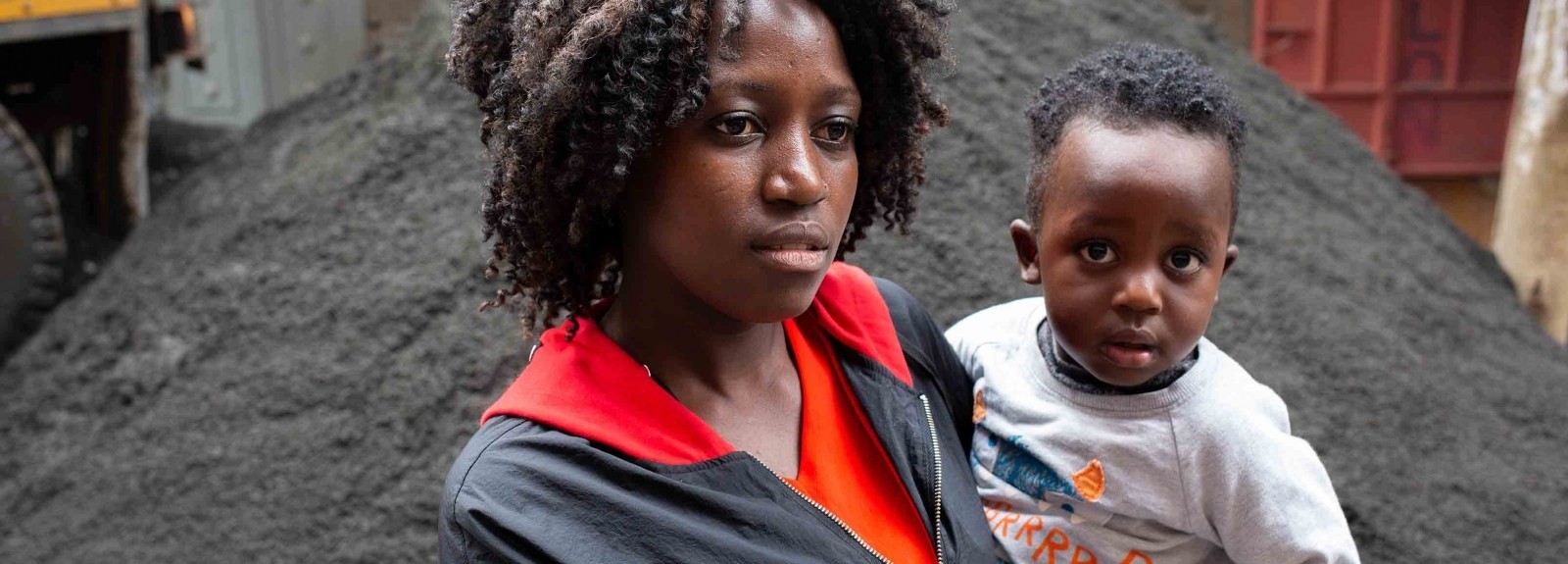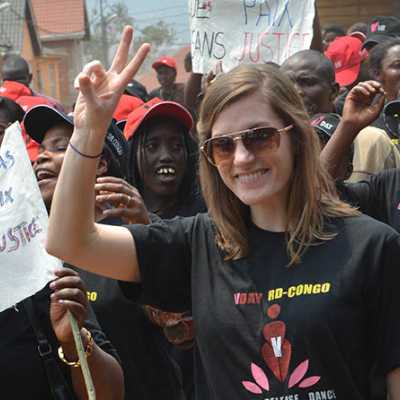Lilian Mutheu grew up in Mukuru, one of the largest slums in Nairobi, Kenya. The living conditions in Mukuru are some of the worst imaginable. Here, people live in rusted tin shacks that are crammed tightly together, or in congested tenement buildings with no running water. The streets are littered with trash and waste, and communicable diseases like COVID-19 spread quickly due to a lack of clean water and sanitation. Hunger is a persistent struggle for thousands of children, and far too many die from preventable causes.
But Lilian was a bright girl, and she did everything she could to lift herself out of poverty. She studied hard and got a job, but she ran into challenge after challenge in trying to rise above her circumstances. The men at work sexually harassed her, making it clear she would advance only if she gave into their demands. This treatment is not unusual: almost half of all Kenyan women ages 15-49 have experienced violence against women and girls.1 Sexual harassment, rape, domestic abuse — all are acts of violence and oppression that keep vulnerable women and girls like Lilian trapped in poverty.
Still, Lilian persisted. She continued working and hoped to save money for her future, but soon her mother began demanding all of Lilian's wages. When Lilian wouldn't comply, her mother packed Lilian's belongings into a single suitcase and threw her onto the street.
Lilian had tried to do everything right, but now she was alone, forsaken. Years later, she still breaks down in tears whenever she remembers. She was so young, and she had nowhere else to go. Her only option was to move in with her boyfriend.
Before long, Lilian became pregnant, and her rise out of poverty became even steeper.
A better life, starting with water
Lilian looks at her son Nevil, now four years old, with deep love in her eyes, and she would not trade him for the world. She continues to work hard with the hope of giving him everything she didn't have in life — opportunity, unconditional love, a safe place to call home. She has even become a mentor to other young girls, offering advice and support to help them make healthy choices.
But, despite her efforts and hard work, Lilian and Nevil still live in the slum. And though they have love, they do not have clean water at home.
Safe water is the most expensive item families in Mukuru have to buy, and many are forced to choose between essentials: food, water, soap, rent, medical care. It's a choice no mother should have to make.
Your love can make the difference
Through Lutheran World Relief, your love can reach anywhere: into the driest deserts, the most rural villages, the urban slums Lilian calls home. As COVID-19 continues to threaten the health and stability of communities across the world, vulnerable neighbors like those living in Mukuru are at greatest risk.
So many are already suffering from the many effects of extreme poverty. One way you can make a difference today is with the gift of clean water so families can save money, cook and drink safely, wash their hands and avoid getting sick and even dying from waterborne illnesses.
Our calling is a simple one: to love our neighbors. Will you love your neighbors in Mukuru by making a gift today?
1 According to the 2014 Kenya Demographic Health Survey



